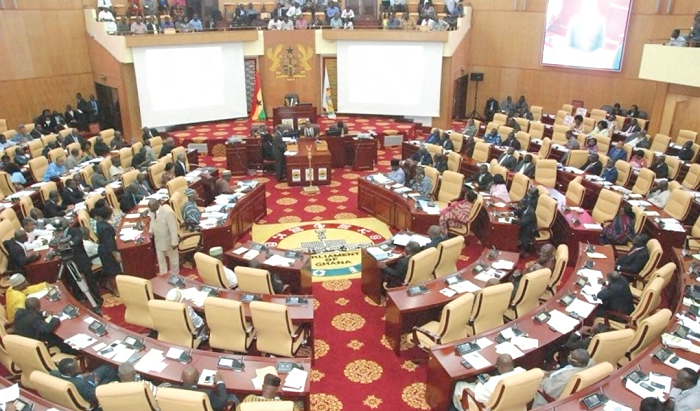
Parliament calls for re-introduction of Plant Breeders Bill
The Parliamentary Select Committee on Environment, Science and Technology has recommended to Parliament to re-introduce and pass the Plant Breeders Bill to protect the intellectual rights of seed producers in the country.
Advertisement
The recommendation follows the inability of the Centre for Scientific and Industrial Research (CSIR) to get any benefit from the seeds it developed in 2017 for the Planting for Food and Jobs programme due to the lack of the legislation.
The CSIR, in support of the government’s planting for food and jobs programme developed several improved varieties of food including sweet potatoes, cassava, cocoyam and yam.
These crops were adopted by Ghanaian farmers, as well as several other farmers in the West Africa region due to their high level of yield.
However, because there was no legislation to protect the new varieties developed, no benefits accrued to the CSIR.
As a result, the committee in its report on the budget estimates of the Ministry of Environment, Science, Technology and Innovation (MESTI) recommended the re introduction of the Plant Breeders Bill to ensure that patents of the CSIR are protected and benefits accrue to it.
The Plant Breeders Bill, which was put before Parliament in 2013, went through the first and second consideration stages but was put on hold at the third stage when a pressure group, Food Sovereignty Ghana (FSG), raised alarm that the passage of the bill would lead to the imposition of Genetically Modified Organisms (GMOs) into the food chain in Ghana.
The FSG, joined by other civil organisations, argued that the introduction of GMOs would lead to commercial exploit of the poor farmers and, therefore, urged Parliament to defer debate on the bill to allow public consultations to be undertaken prior to the introduction of GMOs in Ghana.
Atomic Energy Commission
The committee also noted that although the Atomic Energy Commission participates in the activities of the International Atomic Energy Association (IAEA), Ghana stood to lose its voting rights because the country had not paid its contribution to the association since 2016.
The country is expected to pay the association a technical contribution fund allowance, national participation cost and regular budget contribution all amounting to €201,695.
The committee ,therefore, urged the Ministry of Finance to pay up the country’s commitment to IAEA to ensure that it does not lose its vote on issues on Atomic Energy, as well as other benefits that may accrue to the Atomic Energy Commission in terms of technical support and equipment.
Nuclear Regulatory Authority
The committee also noted with concern that the Nuclear Regulatory Authority which was set up by law was yet to receive the needed support to function optimally.
The authority still relies on the Atomic energy Commission for support in terms of human resource as it was yet to receive approval to recruit the about 40 new staff that seeks to engage.
The authority was also not able to utilise its Internally Generated Funds (IGF) as support to its operations because the Ministry of Finance (MoF) was yet to capture it as a non-tax revenue organisation.
The committee was ,however, satisfied to note that the MESTI was taking steps to ensure that the MoF gave approval for the generation and utilisation of the IGF by the authority.
It was again realised that the authority spent an amount of GH¢ 968,614 for the servicing of vehicles and night allowance when it needed funds to purchase new cars to aid in its activities.
The committee considered the practice as unacceptable and urged MESTI to take a further look at the activities of the authority to ensure that such practices were curbed. — GB



